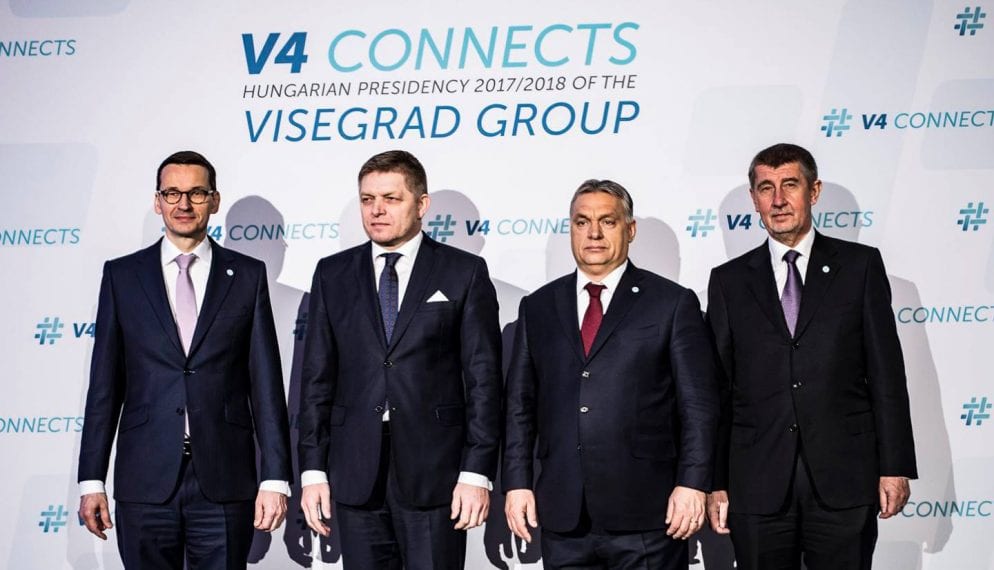
PM Orbán on the Visegrád Four: “Our goal is for Europe to be stronger”
2018. 02. 07.
“We – V4 countries – have become a group of countries with independent economic performance, the fastest developing region in Europe,” said Prime Minister Viktor Orbán, adding that “that does not diminish the strength of Europe but adds to it.”
The prime minister was speaking at a gathering of heads of government of the Visegrad Four that took place late last month in Budapest under the banner, “The Future of Europe.”
A few years ago, not many would have predicted that the Visegrad countries would become the driving force behind Europe’s economic growth. Today, the four countries share much in common, “decidedly friendly relations,” the prime minister said, and a common vocabulary that “contains words that are rarely heard to the west of us: words such as sovereignty, independence, freedom, God, homeland, family, work, honor, security and common sense.”
The last few years have seen the V4 develop at a remarkable pace. Slovakia has turned around under the leadership of Prime Minister Robert Fico, the Czech economy remains robust, and Poland is now developing “at an incredibly rapid pace,” Prime Minister Orbán said.
“[O]ur trade with the Germans exceeds trade volume between France and Germany by 55 per cent. It’s twice as much as that between the UK and Germany, and it’s three times higher than that between Italy and Germany,” he said. “This is a good indication that we’re not just loitering in the money distribution center of the European Union.”
On the contrary, the so-called net contributor Member States profit from their economic relations with Central Eastern European countries. “We are not receiving or requesting aid,” said Prime Minister Orbán, “but are a self-aware community that gives at least as much to the EU as the EU gives us.”
A conversation about the future of Europe, therefore, should involve all Member States equally. At the moment, the EU’s Lisbon objectives – a competitive Europe, a free trade market from Lisbon to Vladivostok and making the EU the most competitive and developed region in the world – have not been realized and the migration crisis has undermined the EU’s future.
Underlining the significant gains that the EU has already achieved – like the Schengen Area and the Single Market – the Visegrád Four’s joint statement said that these should be carefully preserved. The four also emphasized that a strong Europe can only be composed of strong Member States, which EU institutions should support within the remits of their respective Treaty-based competences.
Our targets, let them be a work-based society or digitalization, should be achieved in the form of “an alliance of free nations,” PM Orbán said, echoing the V4 statement calling for “narrowing the distance between European citizens and Brussels-based institutions.”
Mass migration threatens to become a game-changer and must be addressed properly. A comprehensive approach has to be employed, one that doesn’t redistribute but eliminates migration pressure on Europe by “guaranteeing the protection of external borders and the differentiation between genuine asylum seekers and illegal and economic migrants.” Population problems should be solved by an effective family policy, not through immigration.
“[W]e are pro-Europe politicians,” said Prime Minister Orbán, “and our goal is for Europe to be stronger.”